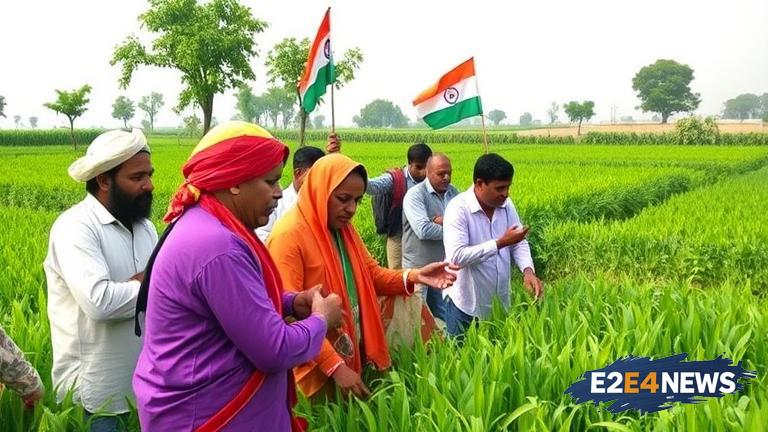The Samyukta Kisan Morcha (SKM), a prominent farmer coalition in India, has come out strongly against the Centre’s National Cooperation Policy 2025. The policy, which aims to promote cooperation and collaboration among various stakeholders in the agricultural sector, has been met with skepticism by the SKM. The farmer coalition has expressed concerns that the policy will lead to the exploitation of farmers by large corporate entities and will undermine the welfare of the agricultural community. The SKM has also criticized the policy for its lack of clarity and transparency, stating that it does not provide adequate safeguards for the rights of farmers. Furthermore, the coalition has argued that the policy will lead to the concentration of land and resources in the hands of a few large players, thereby exacerbating the existing inequalities in the agricultural sector. The SKM has also expressed concerns over the policy’s potential impact on the environment, stating that it will lead to the degradation of soil and water resources. In addition, the coalition has criticized the policy for its failure to address the issue of farmer suicides, which has been a major concern in the agricultural sector. The SKM has also argued that the policy will lead to the displacement of small and marginal farmers, who will be unable to compete with the large corporate entities. The coalition has demanded that the government withdraw the policy and engage in a broader consultation with farmers and other stakeholders to develop a more inclusive and equitable policy. The opposition to the National Cooperation Policy 2025 is not limited to the SKM, with other farmer organizations and civil society groups also expressing concerns over its impact. The policy has been seen as an attempt by the government to promote the interests of large corporate entities at the expense of the welfare of farmers. The government has argued that the policy is necessary to promote efficiency and productivity in the agricultural sector, but the SKM and other critics have argued that it will lead to the exploitation of farmers and the degradation of the environment. The controversy over the National Cooperation Policy 2025 has highlighted the deep-seated tensions between the government and the agricultural community, with farmers demanding greater protection and support for their rights. The SKM has called for a nationwide protest against the policy, with farmers and other stakeholders expected to participate in large numbers. The government has been criticized for its handling of the issue, with many arguing that it has failed to engage in a meaningful dialogue with farmers and other stakeholders. The opposition to the policy has also highlighted the need for a more inclusive and equitable approach to agricultural policy-making, one that takes into account the concerns and interests of all stakeholders. The SKM has argued that the policy is a reflection of the government’s broader agenda to promote the interests of large corporate entities at the expense of the welfare of farmers and the environment. The coalition has demanded that the government develop a more comprehensive and inclusive policy that addresses the concerns of all stakeholders. The controversy over the National Cooperation Policy 2025 has also highlighted the importance of transparency and accountability in policy-making, with many arguing that the government has failed to provide adequate information and consultation on the policy. The SKM has argued that the policy is a classic example of the government’s tendency to impose policies on farmers without adequate consultation or consideration of their concerns. The coalition has demanded that the government engage in a more meaningful and inclusive dialogue with farmers and other stakeholders to develop policies that are in the best interests of all. The opposition to the National Cooperation Policy 2025 has also highlighted the need for a more nuanced and balanced approach to agricultural policy-making, one that takes into account the complex and interconnected nature of the agricultural sector. The SKM has argued that the policy is a reflection of the government’s failure to understand the complexities of the agricultural sector and the needs and concerns of farmers. The coalition has demanded that the government develop a more comprehensive and inclusive policy that addresses the concerns of all stakeholders and promotes the welfare of farmers and the environment.
